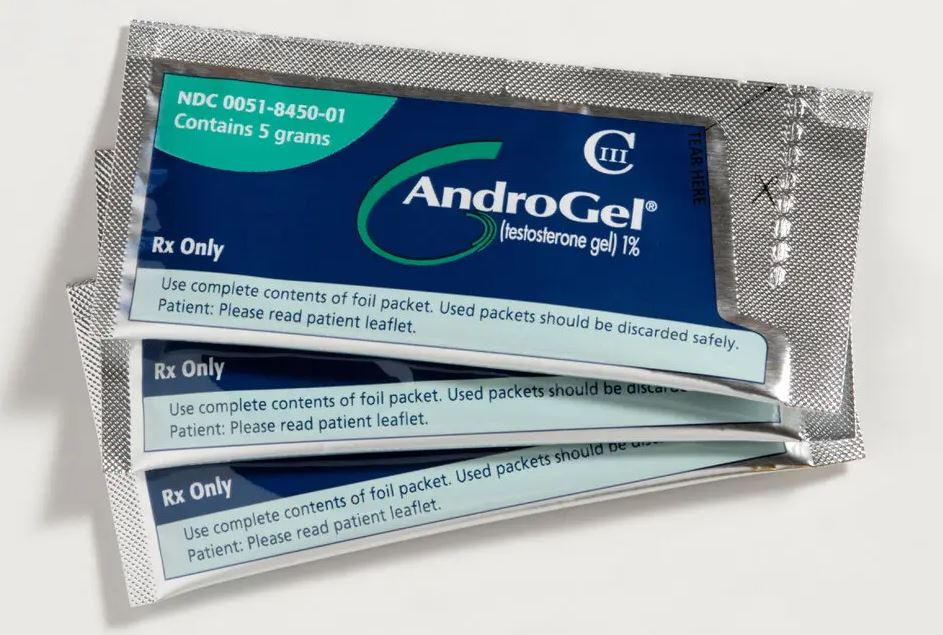Reassuring news for a subset of patients whose bodies don’t make enough testosterone was found in the biggest research yet conducted to investigate the safety of hormone replacement for males, which found that the hormone did not increase heart attacks, strokes, or cardiac deaths.
The latest findings from a big clinical study, the gold standard in medicine, do not eliminate all causes for worry, however. However, they seem to settle decades of conflicting research on the cardiac safety of testosterone therapy for men with androgen insufficiency, often known as hypogonadism.
The authors emphasised that their findings did not apply to the numerous middle-aged and older men who use testosterone supplied at anti-aging centres without first being examined in the hopes of gaining muscle mass or increasing their energy and sex drive.
Although testosterone levels naturally decrease with age and weight increase, genuine hypogonadism is thought to be far less prevalent, and its frequency and incidence have not been thoroughly investigated, the study’s authors write.
In the trial, 5,246 males with the diagnosis throughout the United States were recruited and randomly allocated to receive a patch containing either a regular amount of testosterone or a placebo with no active substance. Each man either already had heart disease or was at a high risk for developing it. Researchers found no link between testosterone and an increased risk of cardiovascular events such heart attacks, strokes, or deaths from these causes after a mean follow-up of two years.
Approximately 7% of males in both the testosterone and placebo groups had a cardiac incident during the follow-up period.
However, the research did find a small but significant increase in the risks of acute renal illness, blood clots in the pulmonary artery, and atrial fibrillation among individuals who got the medication.
Low testosterone levels and other symptoms are hallmarks of true hypogonadism, which Dr. Anawalt says may be caused by things like a hereditary condition, chemotherapy, head trauma, or a tumour in the pituitary gland.
The results of the research were published in the New England Journal of Medicine and presented at the annual conference of the Endocrine Society on Friday in Chicago. The FDA requested the study, which was conducted by the Cleveland Clinic’s Coordinating Centre for Clinical Research and an outside contract research organisation, and it was sponsored by testosterone-producing pharmaceutical firms.
However, the research does not provide definitive answers to all of the safety concerns surrounding testosterone. Older males who have been frequenting anti-aging clinics were excluded from the clinical investigation. The F.D.A. reports that many of these clinics give testosterone without first checking patients’ hormone levels. Only individuals with a confirmed diagnosis of testosterone insufficiency after multiple testing and signs of low testosterone levels were considered for inclusion.
In addition to the absence of long-term data, the trial’s poor retention rate was due to the fact that 60% of patients in each group stopped using the patch before the completion of the study.
However, the trial’s findings are significant for both doctors and patients with hypogonadism, since many of both groups may have been hesitant to treat the illness due to fears of cardiovascular complications.
In addition to sexual symptoms, hypogonadism can cause depression, osteoporosis, anaemia, muscle loss, and the bothersome condition benign prostatic hypertrophy, which blocks the flow of urine. Other researchers are analysing the data to determine how effective testosterone treatment is at alleviating these symptoms.
In 2010, the FDA looked into testosterone replacement treatment after a clinical study of the hormone was terminated due to individuals experiencing heart attacks while using it; in 2015, the FDA mandated that testosterone manufacturers perform a clinical trial to investigate the risk.
The government also mandated the addition of a “black box” warning label on testosterone products, indicating that they may enhance the user’s risk of cardiovascular disease.
Endocrinologist and co-principal investigator at Boston’s Brigham and Women’s Hospital Dr. Shalender Bhasin is examining the trial’s data to determine whether or not testosterone treatment ameliorates sexual dysfunction and other symptoms of hypogonadism.

